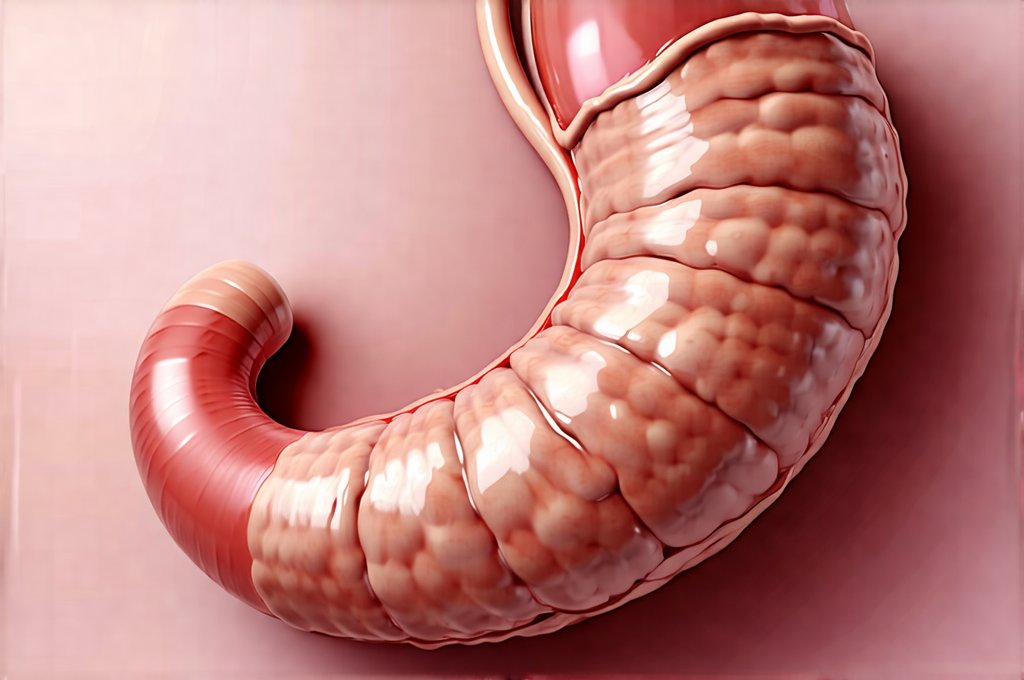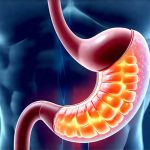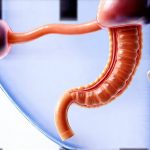Digestion is often taken for granted, yet it’s a remarkably complex process involving numerous organs, enzymes, and acids working in concert. When this intricate system falters, even seemingly minor disruptions can lead to uncomfortable symptoms like bloating, gas, and abdominal discomfort. While many associate excessive stomach acid with digestive issues – and treatments frequently target reducing it – a surprising number of people suffer from low stomach acid production (hypochlorhydria), often without realizing the root cause. This deficiency isn’t merely about lacking acidity; it’s about disrupting the entire digestive cascade, setting off a chain reaction that significantly impacts gas production and overall gut health.
The perception of ‘too much’ acid is frequently conflated with symptoms stemming from other issues like Helicobacter pylori infections or dietary sensitivities. Low stomach acid often goes undetected because its early symptoms – such as feeling full quickly, undigested food in stool, or nutrient deficiencies – are easily dismissed or attributed to less specific causes. It’s important to understand that adequate stomach acid is crucial not just for breaking down food but also for sterilizing it (killing harmful bacteria), activating enzymes like pepsin (essential for protein digestion), and facilitating the absorption of vital nutrients like iron, calcium, and vitamin B12. When this foundational process is compromised, digestive gas becomes a very common consequence. Understanding the effect of aging on the digestive system can also provide valuable insight into changes in acid production.
The Connection Between Stomach Acid & Gas Production
Stomach acid plays a pivotal role in initiating digestion, but its influence on gas production isn’t always direct. It’s more about what happens when stomach acid is insufficient. Normally, the acidic environment of the stomach breaks down food into chyme – a semi-fluid mass that slowly enters the small intestine. This process minimizes fermentation within the stomach itself. However, with low stomach acidity, carbohydrates and proteins remain undigested for longer periods, reaching the small and large intestines where they become prime targets for bacterial overgrowth. These bacteria feast on undigested food, producing significant amounts of gas as a byproduct of their metabolic processes.
The type of gas produced also changes. Healthy digestion primarily results in gases like hydrogen, carbon dioxide, and methane – relatively innocuous in moderate amounts. But when fermentation runs rampant due to low stomach acid, the bacterial composition shifts, often leading to an increase in hydrogen sulfide (known for its rotten egg smell) which is linked to more pronounced digestive discomfort. It’s a vicious cycle: undigested food fuels bacterial growth, bacterial growth produces excessive gas, and excessive gas exacerbates digestive symptoms. Digestive enzymes can sometimes help break down foods when acid production is low.
Furthermore, impaired stomach acid impacts the pyloric sphincter, the muscle that regulates the flow of chyme from the stomach to the small intestine. A weakened sphincter can allow larger boluses of undigested food to rapidly enter the small intestine, overwhelming its capacity and contributing to fermentation even further downstream. This rapid transit also reduces the time available for nutrient absorption, potentially leading to deficiencies that can then worsen digestive function over time.
Causes of Low Stomach Acid
Identifying the cause of low stomach acid is crucial for addressing it effectively. It’s rarely a single factor but rather a combination of lifestyle, diet, and underlying health conditions. One common contributor is chronic stress. The body prioritizes energy during stressful periods, often diverting resources away from digestive processes – including acid production. Long-term stress can literally ‘shut down’ stomach acid secretion.
Another significant cause is the overuse of proton pump inhibitors (PPIs) and antacids. While these medications provide temporary relief from heartburn, they simultaneously suppress acid production, potentially creating a dependency and exacerbating the underlying problem over time. Many people begin taking PPIs for occasional indigestion and then find themselves unable to stop without experiencing rebound acidity – leading to continued medication use and further reduced stomach acid levels. Artificial sweeteners can also disrupt the gut microbiome, potentially contributing to these issues.
- Dietary factors also play a role:
- A diet high in processed foods, sugar, and refined carbohydrates can disrupt gut bacteria balance, contributing to fermentation.
- Insufficient intake of zinc, B vitamins, and other nutrients essential for hydrochloric acid production can impair digestive function.
- Eating too quickly or not chewing food thoroughly places a greater burden on the stomach, potentially overwhelming its capacity.
Nutrient Deficiencies & Gut Microbiome Imbalance
Low stomach acid directly impacts nutrient absorption. As mentioned earlier, vital minerals like iron, calcium, and magnesium require an acidic environment to be properly absorbed in the small intestine. Vitamin B12 also relies on intrinsic factor (a protein produced by cells in the stomach) which is activated by stomach acid. A deficiency in these nutrients can lead to a range of health problems beyond digestive issues – including fatigue, weakened immunity, and neurological symptoms. It’s important to note that simply taking supplements may not be enough if the underlying issue of low stomach acid remains unaddressed.
The gut microbiome—the trillions of bacteria residing in our digestive tract—is profoundly affected by stomach acid levels. A healthy microbiome is characterized by diversity and a balance between beneficial and potentially harmful bacteria. Low stomach acid encourages an overgrowth of small intestinal bacterial overgrowth (SIBO), where bacteria migrate upwards from the large intestine into the small intestine, creating excessive fermentation and gas production. SIBO can further disrupt nutrient absorption and contribute to chronic digestive symptoms. The impact of carbonated beverages on gut health should also be considered.
The interplay is complex; a compromised microbiome can also contribute to low stomach acid by interfering with signals that stimulate acid secretion. Restoring gut health through dietary changes (such as incorporating probiotic-rich foods), reducing stress, and addressing underlying infections are essential components of improving digestion.
Strategies for Supporting Healthy Stomach Acid Production
While self-treating is not advisable, there are several lifestyle and dietary adjustments that may help support healthy stomach acid production. One effective strategy is mindful eating—slowing down during meals, chewing food thoroughly, and focusing on the act of eating. This reduces the burden on the stomach and allows for better initial digestion. Incorporating bitter foods (like arugula, dandelion greens, or radicchio) before meals can also stimulate digestive juices, naturally encouraging acid production.
Another approach is to consider incorporating apple cider vinegar (ACV), diluted in water, 15-20 minutes before a meal. However, ACV should be used cautiously and may not be suitable for everyone, especially those with ulcers or gastroesophageal reflux disease (GERD). It’s vital to start with small amounts and monitor your body’s response. Caffeine consumption can also affect stomach acid levels, so mindful intake is important.
- Here are some steps you can take:
- Reduce stress through techniques like meditation, yoga, or deep breathing exercises.
- Limit processed foods, sugar, and refined carbohydrates in your diet.
- Focus on whole, unprocessed foods rich in nutrients essential for digestion.
- Consider working with a healthcare professional to identify any underlying nutrient deficiencies or gut imbalances.
It’s crucial to remember that these strategies are not substitutes for proper medical evaluation. If you suspect low stomach acid is contributing to your digestive gas and discomfort, consult with a doctor or registered dietitian. They can help determine the root cause of your symptoms and develop a personalized plan tailored to your individual needs. They might suggest testing options such as a Heidelberg test (which measures stomach acidity levels) or stool analysis to assess gut microbiome composition. Tight jeans can also contribute to digestive discomfort and pressure, so consider mindful clothing choices. Ultimately, addressing low stomach acid is about restoring balance to the entire digestive system – leading to improved nutrient absorption, reduced gas production, and overall better health. Also, be aware of chocolate’s effect on reflux symptoms.


















